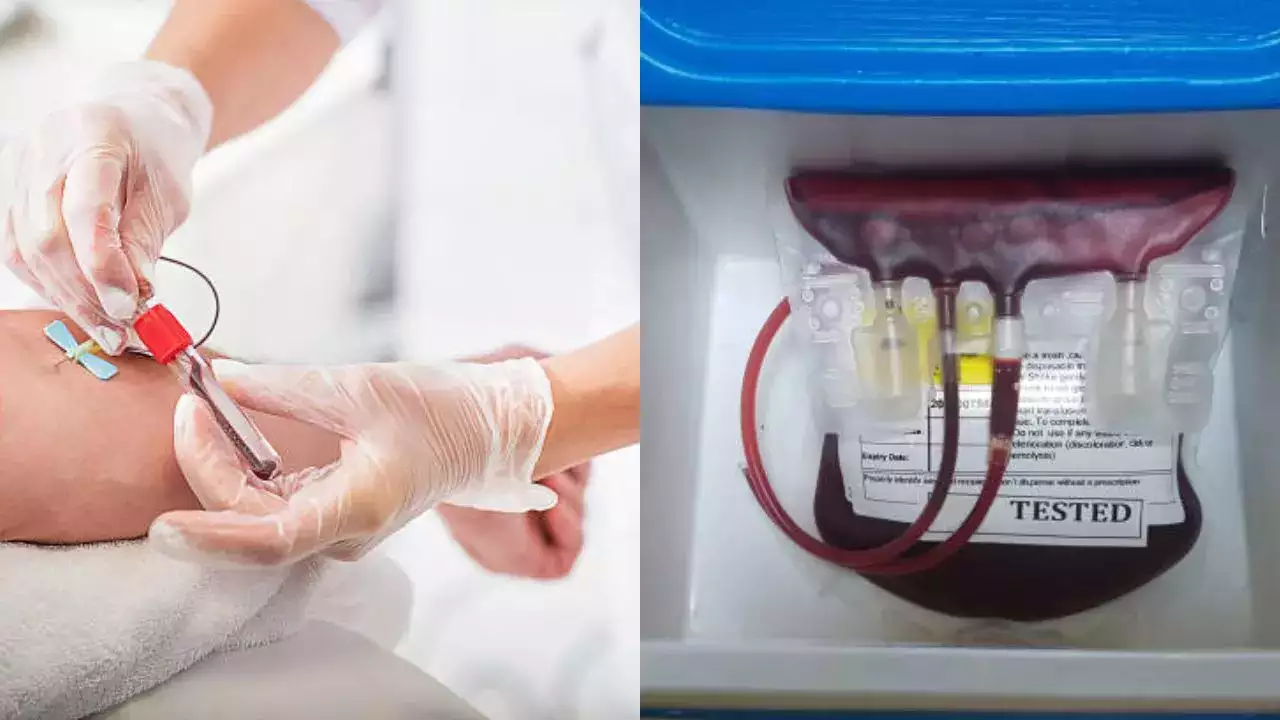Ashima Sharda Mahindra • 11 Dec 2024
Child Battles For Life At Jaipur Hospital After Receiving AB+ Blood Instead of O+; What Happens When Transfusion Goes Wrong?

Hospital officials say the child's condition was already critical upon admission
A 10-year-old child at JK Lone Hospital in Jaipur was allegedly given an incorrect blood transfusion. According to news reports, the alleged negligence happened when the hospital staff gave the child two different blood types on December 5 and 7. While his blood group was O+, he received AB+ blood.
The hospital administration stated that the boy was admitted to the intensive care unit for treatment of chronic kidney disease and was put on a ventilator following his admission.
However, hospital officials said that his condition was already critical upon admission. “A committee has been formed to investigate the incident. The child’s health is being closely monitored. Tests were conducted to detect any reaction to the wrong blood transfusion, but no evidence of a reaction was found,” JK Lone Medical Superintendent Dr. Kailash Meena told The Times of India.
A copy of his blood report issued earlier this week, accessed by TOI, shows that his creatinine level is 8.5 mg/dL, much higher than the normal level of 0.6 mg/dL to 1.5 mg/dL. His urea level is 336 mg/dL, much higher than the normal level of 10–50 mg/dL, and hemoglobin is 5.1 g/dL, while it should be in the range of 12–18 g/dL.
What happens when you receive the wrong type of blood during a transfusion?
According to experts, receiving the wrong type of blood causes an ABO incompatibility reaction during transfusion. Even though it is rare, a serious and potentially fatal response to incompatible blood by your immune system.
According to experts, there are many precautions in place to reduce the chances of a mistake. Your doctor and nurse know to look for certain symptoms during and after your transfusion that might mean you are reacting. This allows them to provide you with treatment as quickly as possible.
How does transfusion work?
The four main blood types are A, B, AB, and O. So, if you are A, your red blood cells have proteins attached to them known as A antigens. Similarly, type B blood cells carry B antigens.
Your immune system will produce antibodies against any blood antigens you do not have in your blood. And so, those with type A blood would create antibodies against B antigens. In an ABO incompatibility reaction, your immune system attacks the new blood cells and destroys them.
If you have type O blood, which has no antigens, you’re a universal donor. You can give your blood to anyone without triggering their immune system, but you can only receive type O blood.
Symptoms of blood transfusion incompatibility
If you have an ABO incompatibility reaction, you will start to have symptoms within a few minutes of receiving a transfusion, which include:
- Fever and chills
- Breathlessness
- Muscle aches
- Nausea and vomiting
- Chest, stomach and back pain
- Blood in your urine
- Jaundice
How is ABO incompatibility diagnosed?
According to doctors, if you have been administered the wrong blood group by mistake, your doctor will test samples of your blood for evidence of the destruction of your red blood cells. Apart from that, a urine test would be conducted to see if it contains hemoglobin - a component released from broken-down blood cells.
While these procedures are performed, your vitals will also be monitored, including:
- Blood pressure
- Heart rate
- Breathing
- Temperature
Get Latest News Live on Times Now along with Breaking News and Top Headlines from Health and around the world.